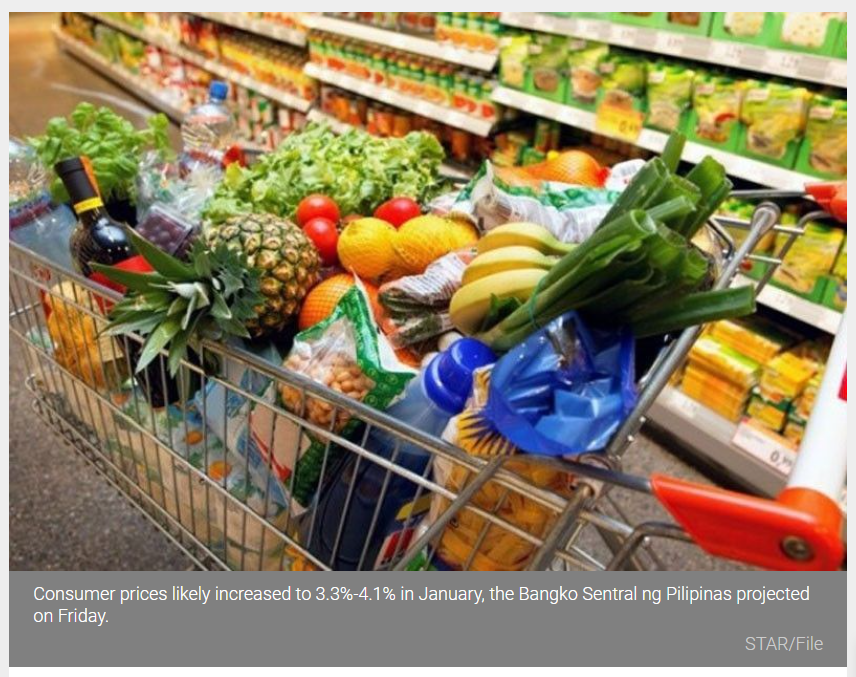Philippines: Inflation, deemed transitory, likely overshot target in January
MANILA, Philippines — Just when the economy is starting to heal from pandemic-induced wounds, an old enemy appears to be making a comeback to spoil a fragile recovery: inflation.
The year potentially started with inflation breaching the Bangko Sentral ng Pilipinas’ (BSP) 2-4% target for the year, complicating a slow grind toward full economic rebound even as economic officials work to prevent high prices from enduring.
BSP economists project consumer prices to have increased between 3.3 and 4.1% year-on-year in January, the central bank said in a statement on Friday. Official inflation data will be reported on February 5.
“Inflation is back,” Nicholas Antonio Mapa, senior economist at ING Bank in Manila, said in an emailed commentary. Mapa is penciling in a milder 3.8% inflation this month.
“Complicating matters for this challenging year would be the return of BSP’s nemesis, inflation, which should whittle down what little purchasing power is left to already challenged households,” he added.
What was once discounted as “transitory” in nature has left the government scrambling for a viable lid on soaring prices, particularly triggered by vegetables and pork due to tight supply triggered by typhoon damage in crops and African swine flu in hogs.
In January, BSP said more expensive fuel prices also likely pushed inflation up from 3.5% year-on-year in December, already the fastest in nearly 2 years. Higher power prices as well as that of liquor and cigarettes due to new taxes would also have contributed to elevated costs.
Gov’t ‘proactive’ vs. inflation
The good news, the central bank said, is that rice and fish prices had been stable, and that of vegetables had started to taper down, together with a strong peso that reduces import costs. For Acting Socioeconomic Planning Secretary Karl Kendrick Chua, the Duterte administration is “proactively managing inflation” and would soon lower tariff rates for imported pork to allow more supplies in.
Inflation had now been left to the government to tame after BSP said tightening monetary policy, which essentially means reducing money supply in the financial system, is off the table and unlikely to work when it is supply shortage that is driving up prices, not consumer demand.
Doing so would imperil what Chua characterized as a “slow start” back to growth for an economy that collapsed 9.5% year-on-year in 2020, the worst in post-war time era since, as BSP had consistently maintained, P2 trillion released by its aggressive 200-basis-point easing is needed to finance economic activities.
Friday’s statement from the BSP bore no indication of worry to rising inflation, though. “Going forward, the BSP will remain watchful of economic and financial developments to ensure the delivery of its primary mandate of price stability conducive to a balanced and sustainable growth,” it said.
ING Bank’s Mapa agreed with BSP to stay pat, while also flagging the need to control inflation this early. “Despite the threat of higher prices, monetary authorities have indicated that this type of inflation is not as easily addressed by monetary tools,” he said.
“From these statements, we surmise that BSP will not likely move to adjust monetary policy in the face of this episode of inflation, doing as they say ‘accommodating the 1st round effects of inflation’ and ‘only acting to quell possible 2nd round effects,’” he added.
Source: https://www.philstar.com/business/2021/01/29/2073960/inflation-deemed-transitory-likely-overshot-target-january


 Thailand
Thailand




